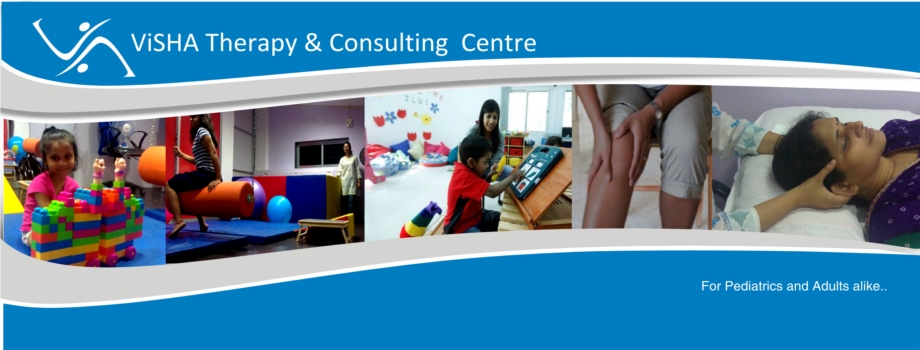SPEECH LANGUAGE THERAPY
In a recent parent-teacher conference, did the teacher express concern that your child may have a problem with certain speech or language skills. Or perhaps while talking to your child, you noticed an occasional stutter.
Could your child have a problem? And if so, what should you do?
It's wise to intervene quickly. An evaluation by a certified speech-language pathologist can help determine if your child is having difficulties. Speech-language therapy is the treatment for most kids with speech and/or language disorders.
Speech Disorders and Language Disorders
A speech disorder refers to a problem with the actual production of sounds, whereas a language disorder refers to a difficulty understanding or putting words together to communicate ideas.
Speech disorders include:
Articulation disorders: difficulties producing sounds in syllables or saying words incorrectly to the point that listeners can't understand what's being said.
Fluency disorders: problems such as stuttering, in which the flow of speech is interrupted by abnormal stoppages, repetitions (st-st-stuttering), or prolonging sounds and syllables (ssssstuttering).
Resonance or voice disorders: problems with the pitch, volume, or quality of the voice that distract listeners from what's being said. These types of disorders may also cause pain or discomfort for a child when speaking.
Dysphagia/oral feeding disorders: these include difficulties with drooling, eating, and swallowing.
Language disorders can be either receptive or expressive:
Receptive disorders: difficulties understanding or processing language.
Expressive disorders: difficulty putting words together, limited vocabulary, or inability to use language in a socially appropriate way.
When does a child need speech therapy?
Speech-language pathologists work with people:
who cannot produce speech sounds, or cannot produce them clearly;
who cannot produce speech sounds, or cannot produce them clearly;
who have problems with speech rhythm and fluency, such as stuttering;
who have voice disorders, such as inappropriate pitch or harsh voice;
who have problems with understanding and producing language;
who wish to improve their communication skills by modifying an accent;
who have cognitive communication impairments, such as attention, memory, and problem solving disorders.
who have swallowing difficulties.
Speech, language, and swallowing difficulties can result from a variety of causes including developmental delays or disorders, learning disabilities, cerebral palsy, cleft palate, voice pathology, mental retardation, hearing loss, stroke, brain injury or deterioration, or emotional problems. Problems can be congenital, developmental, or acquired.
The practice of speech-language pathology involves:
Providing prevention, screening, consultation, assessment and diagnosis, treatment, intervention, management, counseling, and follow-up services for disorders of:
speech (i.e., articulation, fluency, resonance, and voice including aeromechanical components of respiration);
language (i.e., phonology, morphology, syntax, semantics, and pragmatic/social aspects of communication) including comprehension and expression in oral, written, graphic, and manual modalities; language processing; preliteracy and language-based literacy skills, including phonological awareness;
swallowing or other upper aerodigestive functions such as infant feeding and aeromechanical events (evaluation of esophageal function is for the purpose of referral to medical professionals);
cognitive aspects of communication (e.g., attention, memory, problem solving, executive functions).
sensory awareness related to communication, swallowing, or other upper aerodigestive functions.
Collaborating in the assessment of central auditory processing disorders (CAPD) and providing intervention where there is evidence of speech, language, and/or other cognitive communication disorders.
Speech-language pathologists in schools collaborate with teachers, special educators, interpreters, other school personnel, and parents to develop and implement individual or group programs, provide counseling, and support classroom activities.
Speech-language pathologists can also conduct research on how people communicate.
Speech-language pathologists design and develop equipment or techniques for diagnosing and treating speech problems.
How do they work?
Speech-language pathologists provide services to individuals with disorders often along with physicians, social workers, psychologists, and other therapists. Speech-language pathologists use qualitative and quantitative assessment methods, including standardized tests, as well as special instruments, to analyze and diagnose the nature and extent of speech, language, and swallowing impairments. Speech-language pathologists develop an individualized plan of care, tailored to each patient's needs. For individuals with little or no speech capability, speech-language pathologists may select augmentative or alternative communication methods, including automated devices and sign language, and teach their use. They teach these individuals how to make sounds, improve their voices, or increase their oral or written language skills to communicate more effectively. They also teach individuals how to strengthen muscles or use compensatory strategies to swallow without choking or inhaling food or liquid. Speech-language pathologists help patients develop, or recover, reliable communication and swallowing skills so patients can fulfill their educational, vocational, and social roles. They counsel individuals and their families concerning communication disorders and how to cope with the stress and misunderstanding that often accompany them. They also work with family members to recognize and change behavior patterns that impede communication and treatment and show them communication-enhancing techniques to use at home. Speech-language pathologists keep records on the initial evaluation, progress, and discharge of clients. This helps pinpoint problems and track client progress.
Speech Language Pathologist: Ms. Vidhi Sanghvi.
Masters in Audiology and Speech language Pathology (M.A.S.L.P)
ViSHA Therapy and Consulting Centre
+91-7666103448.

No comments:
Post a Comment